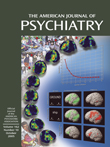Cognitive Control and Semantics in Schizophrenia: An Integrated Approach
Abstract
OBJECTIVE: The authors tested whether decisions about incongruencies in the representation and processing of semantic knowledge, thought to be related to cognitive control, are selectively impaired in schizophrenia. METHOD: Twenty-four patients with schizophrenia and 24 healthy comparison subjects determined the relative size of paired stimuli as they are in the real world. Stimuli were words or images. Real-world “distance” (size difference between stimuli) was manipulated within pairs, as was “congruency” between real-world and presentation size. RESULTS: Although patients were slower overall, both groups exhibited similar effects of “distance” and “congruency”; the task was easier when the real-world size difference between stimuli was greater and when stimuli were congruent in presentation and real-world size. CONCLUSIONS: Some aspects of the representation of semantic knowledge are preserved in schizophrenia, and patients use this information to control cognition in the same manner as healthy individuals.



